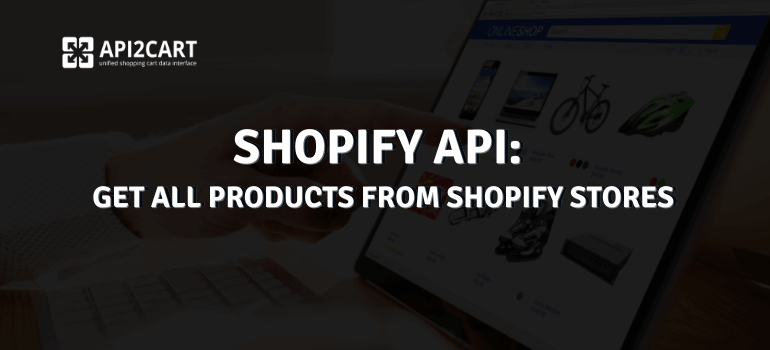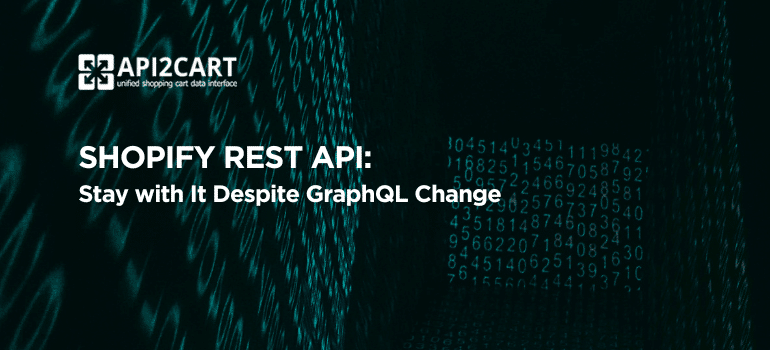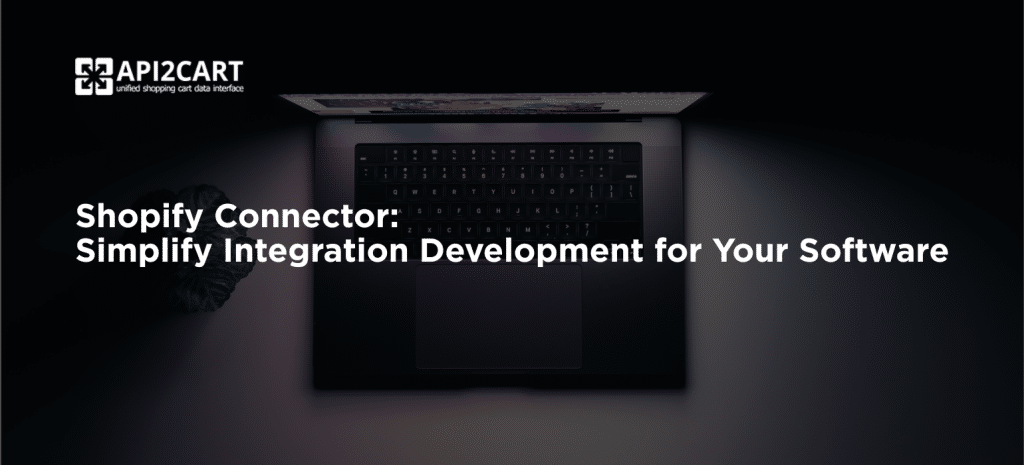
As a software developer, you want to keep up with the latest technologies. You also want to make sure your applications can interface with any merchant platform that becomes available. Shopify is one such platform that has become increasingly popular for businesses selling online. An excellent way for developers to access data from these stores is through the Shopify API. Eventually, using the Shopify API to get all products from a store is a common task for developers building eCommerce apps, tools, or integrations.
So, using the Shopify API to get all products from a store is a common task for developers building eCommerce apps, tools, or integrations.
So today, we'll be taking an overview of this powerful feature, discussing how it works, and diving into best practices on how to get all product data from Shopify stores using the API. Let's explore!
Definition of Shopify API
The Shopify API is a powerful set of application programming interfaces designed to give developers secure access to a store’s data and functionality. Today, Shopify primarily promotes its GraphQL Admin API, which offers more flexibility and efficiency compared to traditional REST APIs by allowing developers to request exactly the data they need in a single query. With GraphQL, applications can interact with store products, collections, customers, orders, and many other objects with fewer calls and faster responses.
Despite Shopify’s focus on GraphQL, many developers continue to use the Shopify REST API: Stay with It Despite GraphQL Change, which remains supported and widely used for integrations and legacy applications. Both GraphQL and REST APIs provide functionality for reading, creating, updating, and deleting store data, managing shop settings, and receiving notifications about store events via webhooks.
The Shopify API supports JSON data formats and works with common HTTP methods such as GET, POST, PUT, and DELETE (for REST), and POST for GraphQL queries and mutations. This flexibility enables developers to build custom apps for Shopify merchants, integrate stores with external services, and unlock new opportunities for automation and growth.
Software Systems That Depend on Access to Shopify Data
Here is the list of various software solutions that depend on access to Shopify data:
- The inventory management system connects with Shopify to be able to retrieve products and orders from its stores. It allows such software to provide features related to inventory control and stock level synchronization.
- Mobile commerce services offer the ability to sync products, orders and other information from online shops and display them on smartphones in real-time. They can do such operations only by having access to the shopping platform's data.
- Data feed management software requires retrieving products with related data to send the information to various channels in order to establish excellent data feed services.
- Shopify integration allows the shipping management software to import orders and products from online stores based on this shopping platform, update tracking info and order statuses, monitor and sync inventory levels, etc.
- Marketing automation software is a system that automates marketing tasks and enables the delivery of personalized content to customers. For example, it can be used to send emails featuring new items, discounts and special prices; notify customers about order statuses; track cart abandoners. Marketing automation systems require access to shopping platforms' data to perform such features.
Shopify Integration Development
Shopify integration development is the process of connecting any software application with the Shopify platform. By integrating your software with Shopify, you can extend your product’s capabilities and provide greater value to merchants using Shopify to run their online stores. This integration requires strong expertise in working with Shopify APIs, which provide access to store settings, products, collections, customers, orders, and other key store data.
API2Cart simplifies this process by offering a unified REST API that allows you to integrate your B2B software with Shopify and 60+ other eCommerce platforms at once. With a single integration through API2Cart, you can retrieve and manage customers, orders, products, and other essential store data from Shopify. You can also update order details, manage inventory, and create shipments easily, saving development time and reducing maintenance costs.

How to Get All Shopify Products
API2Cart provides a variety of API methods for working with e-stores. You can import product data, update orders systematically, and sync inventory across various sales channels. It also supports creating and updating listings.
To get all products from Shopify using API2Cart, you need to register your free trial account on the service and add one of your clients’ stores based on it. After that, you will be able to use such API2Cart API methods:
- product.list method. It returns a list of products from the store. A sample response for this method looks like this:
- product.info method allows you to get information about specific Shopify products connected with product names, attributes, prices and descriptions.
{
"return_code":0,
"return_message":"",
"result":{
"products_count":5,
"product":[
{
"id":"69",
"name":"egestas",
"price":229.13
},
{
"id":"66",
"name":"arcu et",
"price":982.5
},
{
"id":"67",
"name":"egestas",
"price":1147.2
},
{
"id":"68",
"name":"tincidunt",
"price":182.3
},
{
"id":"58",
"name":"aliquet nec",
"price":403.42
}
]
}
}
During the free trial period of 14 days, you can develop an integration between your software and API2Cart and choose the pricing option that better suits your company's needs. Connection with API2Cart provides immediate access to all store data from multiple shopping platforms. In addition, we provide detailed API Docs, SDK and tech support.



